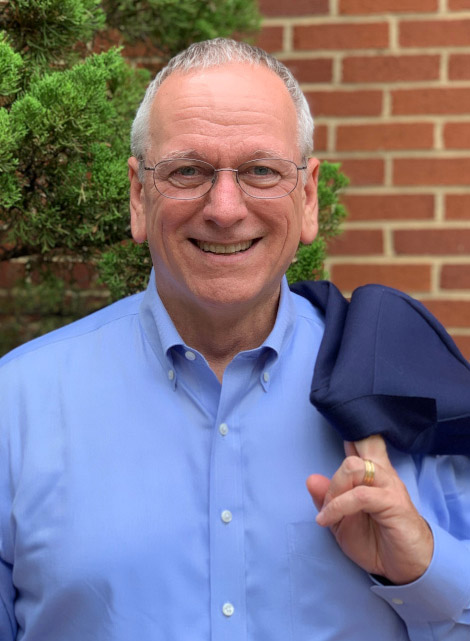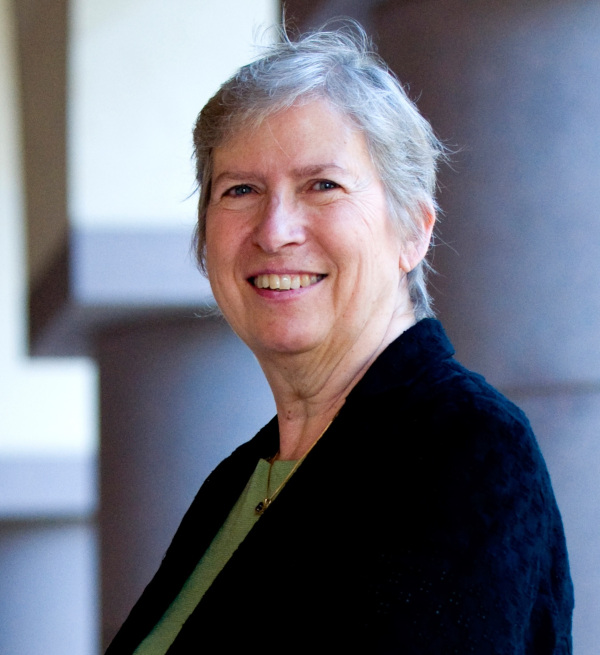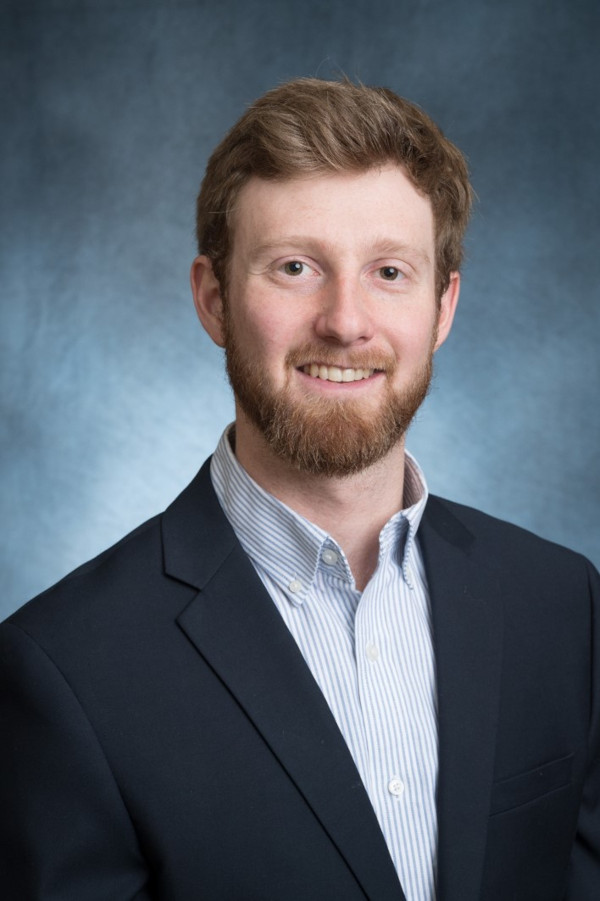Back to the AGI Connections Index
AGI Connections - Fall 2021
Welcome!
We hope you enjoy this inaugural issue of AGI Connections, which highlights AGI news and upcoming events from across the geoscience federation. Help us share important geoscience events by contacting Geoff Camphire, AGI Communications.
In this Issue
- AGI Welcomes New Executive Director
- Higher Education Embraces ‘Vision and Change’
- Ocean Drilling Database Expands Offerings
- ‘Virtual Contexts’ Spur Environmental Education
- Congressional Fellow Passes Torch to Successor
- New From AGI
- Geoscience Community Events
AGI Welcomes New Executive Director

Jonathan Arthur, who took the helm of AGI as its new Executive Director on August 1, “brings to AGI a wealth of leadership experience and vision to the geosciences,” notes AGI President David Wunsch. “His innovations at both the state and national levels have long served to advance the geoscience enterprise.”
Arthur comes to AGI from the Florida Geological Survey, where he most recently served as Director and State Geologist. While at the survey, he played key roles in a variety of scientific, management, and leadership positions, and often advised state and federal programs, as well as service on the Water Science Technology Board of the National Academies of Sciences, Engineering, and Medicine.
He has served the geoscience community in leadership posts as President of the Association of American State Geologists and President of the Florida Association of Professional Geologists. As a former member of the AGI Board of Directors, he served on various committees, including the Strategic Outlook Committee.
Arthur has received recognition for research, leadership, and public service from geoscience organizations including the Geological Society of America and the American Institute of Professional Geologists. Learn more about Arthur’s appointment and other news at AGI News & Announcements.![]()
Higher Education Embraces ‘Vision and Change’

When AGI recently published the landmark Vision and Change in the Geosciences: The Future of Undergraduate Geoscience Education, there was little question of whether the report would illuminate the community’s recognition of the needs and approaches for educating future geoscientists. Its impact is already being felt.
“As we developed Vision and Change over six years, a number of educators with whom we worked began using the information and guidance evolving from the report to make changes,” says Sharon Mosher of the Jackson School of Geosciences, University of Texas at Austin, a principal investigator. “Many of the roughly 60 case studies contained in the report provide a lens for examining not only challenges faced but also ways of addressing them.”
“The report’s information has been used to educate and motivate our faculty to make changes in the content and style of teaching,” testifies Dr. James Kubicki, Department Chair and Professor of Earth, Environmental, and Resource Sciences at the University of Texas at El Paso, who provided a case study. “Working on a departmental curriculum rather than individual courses is a key. We have integrated our curriculum to better connect all of our courses and emphasize skills development.”
The culmination of summits, workshops, and surveys incorporating inputs from more than 1,000 geoscience community members, Vision and Change already has been accessed by thousands of users. Further, thousands of members of the geoscience community have attended AGI’s webinars and Earth Educators’ Rendezvous workshops about the results of the Vision and Change report.
Vision and Change, supported by the National Science Foundation, covers a wide range of issues, from key geoscience concepts and skills to pedagogy, recruitment, diversity, change, and student preparation. The report website features a toolkit of resources, including an executive summary, downloadable charts and graphs, infographics on pathway to occupations, and webinars. The report is available as a free downloadable PDF and in print from Amazon. Learn more about such programs at the AGI Geoscience Workforce Program.![]()
Ocean Drilling Database Expands Offerings

Over the past year, GeoRef staff have added more than 800 new records to the nearly 39,000 total now featured in the Scientific Ocean Drilling Bibliographic Database. The database covers publications in 20 languages, including journals, conference papers, technical reports and theses and is freely available to researchers worldwide. Users can search for results from a specific Language, Leg, Expedition, or Site.
“Scientific ocean drilling has and continues to revolutionize the Earth sciences in topics including plate tectonics, climate change, microbes in extreme environments, and earthquakes and tsunamis,” says Lorri Peters, Manager of Publication Services for IODP Publications at Texas A&M University. “Ground-breaking publications related to these areas are continuously updated and available to researchers in the Scientific Ocean Drilling Bibliographic Database. The database tools allow researchers to customize lists and collections.”
The Scientific Ocean Drilling Bibliographic Database provides bibliographic records relating to research on the Deep Sea Drilling Project, Ocean Drilling Program, Integrated Ocean Drilling Program, and International Ocean Discovery Program (IODP) spanning from 1969 to the present. The database includes both publications produced by the drilling programs and publications containing research based on the drilling programs, including research using core samples and core data from nearly 300 expeditions.
AGI produces and hosts the Scientific Ocean Drilling Bibliographic Database, one of GeoRef’s openly available online products, under contract with IODP Publication Services at Texas A&M University. IODP Publications helps researchers find IODP Program site reports and data reports tagged to specific current topics of interest to the scientific ocean drilling community. Learn more about this and other databases at AGI Scholarly Information.![]()
‘Virtual Contexts’ Spur Environmental Education
Among the challenges educators face as a result of COVID-19 is engaging learners in field-based science and environmental learning when group field trips are scuttled for the sake of safety and social distancing. In response, AGI is working with a set of educational consultants to develop virtual, place-based environmental exploration techniques using platforms such as Google Earth Projects and Esri StoryMaps.
Across six workshops offered over the past year, some 100 educators from various settings have received training funded by Somerset County Public Schools, the Maryland Department of Natural Resources, and ShoreRivers. The workshops, titled “Virtual Contexts for Environmental Exploration,” have enabled participants to not only engage students and members of the public virtually but also facilitate professional development for colleagues in schools and environmental education settings.
Educators already are seeing positive effects from their participation in this innovative initiative. “We found the professional development helpful,” attests Elizabeth Edmondson of Virginia Commonwealth University, who shared place-based techniques with colleagues after participating in the AGI workshop. “The tools learned supported the development of virtual tours for our teachers to use in their classroom this spring and in the future.”
“By using Google Earth Projects, we are able to allow many more people the opportunity to experience a wastewater treatment plant and learn about the role of wastewater treatment in their community,” adds Nicole Horvath, environmental outreach coordinator at WSSC Water, a water and wastewater utility in Maryland. “Because many water utilities face a common challenge of not having enough staff to meet the demand for tours, virtual contexts help to meet demand in a unique, interesting way and is easier than producing videos.”
The initiative developed techniques that apply elements of place-based education, theories of learning, media design, and systems thinking that also have been presented in recent webinars and conferences. The initiative builds on earlier work by AGI, including a workshop done in collaboration with organizations at the American Geophysical Union’s 2018 fall meeting and a virtual field trip created by AGI and the National Park Service called Air Quality at Shenandoah National Park, which allows visitors to learn about research conducted at the park.
To learn more about the initiative, see the article “Earth Science All Around.” Learn more about such programs at AGI Education and Outreach.![]()
Congressional Fellow Passes Torch to Successor

“Having trained scientists at the decision-making table helps us solve our most pressing problems, whether a global pandemic or climate change,” says Jakob Lindaas, 2020-2021 William L. Fisher AGI Congressional Geoscience Fellow. “As AGI’s Fisher Fellow over the past year, I’ve worked as part of a congressional Senate office, learned how the legislative process works, met with federal leaders and constituents alike, and contributed my geoscience expertise to help shape policy discussions on a wide range of issues.”
Lindaas, who recently completed his Ph.D. in Atmospheric Science at Colorado State University, reflected on his congressional experience as AGI awarded the fellowship to Laura Szymanski for the coming 2021-2022 term. A newly minted Ph.D. in the Department of Geography at the University of Wisconsin-Madison, Szymanski studies the potential of carbon in buried soils to contribute to atmospheric carbon dioxide with land disturbance and changes in climate.
“My goal is a career in public service, as an advisor on science and technology issues,” says Szymanski, who formerly served in science policy efforts on behalf of Geological Society of America. “This fellowship will allow me to learn first-hand how policy is made by working directly for a member of Congress or congressional committee and provides the exclusive opportunity to meaningfully contribute to the writing and passage of legislature.”
Each year, AGI’s Fisher Fellow joins dozens of scientists and engineers for an intensive orientation program on the legislative and executive branches, organized by the American Association for the Advancement of Science, which also provides educational and collegial programs throughout the year. Learn more about AGI Fellowships.![]()
New From AGI
-
The landmark Vision and Change in the Geosciences: The Future of Undergraduate Geoscience Education report addresses the drivers, needs, and strategies for preparing future geoscientists, focusing on issues such as key geoscience concepts, pedagogy, recruitment, diversity, change, and career preparation.
-
Geoscience Currents data briefs illuminate geoscience profession, workforce trends, and career paths. Recent titles include “U.S. Geoscience Enrollments and Degrees Collapse in 2019-2020,” “COVID-19 Impacts to Academic Department Operations, April 2021,” and “Academic Activities by Gender and Faculty Rank During the Pandemic.” Subscribe for free.
-
The Earth Science Week 2021 Toolkit offers a variety of printed materials to help you explore geoscience topics relating to the Earth Science Week 2021 theme of “Water Today and for the Future.” See the AGI Store for special pricing on a Multi-Pack of Three Toolkits addressing a variety of geoscience topics.
-
On the web, the Earth Science Week Online Toolkit has added more than a dozen highly visual resources dealing with this year’s theme of “Water Today and for the Future,” including posters, infographics, and items dealing with groundwater, floods, hurricanes, the hydrologic cycle, ocean acidification, coral reef restoration, and more.
-
Webinars hosted by AGI, available for viewing in real time and beyond, target issues critical to the geoscience profession. Recent titles include “Critical Minerals Mapping Initiative Forum,” “Earth Scientists in Congress: Life on the Hill during a Pandemic and National Election,” and “Vision and Change: Implementing Curricular Reform.”
-
The Directory of Geoscience Departments, 56th Edition provides a state- and country-sorted global listing of nearly 2,000 geoscience departments and institutes, as well as over 18,000 faculty and staff. Contact information for departments and individuals is provided, as well as details on department enrollments, faculty specialties, and more.
-
Connecting geoscience employers with those seeking opportunities daily, AGI’s Geoscience Job Center lists employment opportunities currently available across the geoscientific disciplines and sectors, including positions in academia, research, government, nonprofits, and the private sector. Once at the website, click on any job description of interest to learn more.

Geoscience Community Events
-
The International Year of Caves and Karst (IYCK) Planning Guide can help you make the most of this global event, taking place throughout 2021. Download today and take part in IYCK.
-
Geography Awareness Week, November 14 – 20, 2021, raises awareness about the significance of geography to everyone’s lives and encourage people to consider their relationship with the environment.
-
The National Academies’ Management and Adaptation to Aridification in the Western U.S. Water Science and Technology Board Meeting, on November 15, 2021, will provide a 20-year outlook of decisions and strategies needed to manage and adapt to aridification in the Western United States.
-
The National Ground Water Association’s 2021 Groundwater Summit, a virtual event, is coming up December 7-8, 2021. A keynote address will discuss how geochemical reactions in aquifers connect to climate change mitigation.
-
The American Geophysical Union’s Fall Meeting #AGU21: Science is Society, takes place in New Orleans and online everywhere, will be held on December 13-17, 2021.
-
The American Meteorological Society 2022 Annual Meeting is planned for January 23-27, 2022 in Houston. The theme is “Environmental Security: Weather, Water, and Climate for a More Secure World.”
-
American Association of Geographers Annual Meeting, is planned for February 25-March 1, 2022 in New York City.
-
Plans are underway for the 2022 AGI Leadership Forum, an on-line event will be held on March 28-29, 2022. The Forum is titled The Next Generation of Geoscience Societies: Views from Early- and Mid-Career Geoscientists and Leadership. Invitations to member society leaders are forthcoming.
-
The Society for Sedimentary Geology’s Bouma Virtual Conference, will focus on front-line advances in deep-water sedimentology, will take place April 19-23, 2022.
-
2022 Halifax Joint Annual Meeting: Geological Association of Canada, Mineralogical Association of Canada, the International Association of Hydrogeologists – Canadian National Committee, and the Canadian Society of Petroleum Geologists. This meeting to be held May 15 – 18, 2022 coincides with the 50th anniversary of the Atlantic Geoscience Society, the conference host organization.
-
Please see individual websites of AGI Member Societies, Associates, and Liaisons to learn more about additional events, opportunities, resources, and news.

